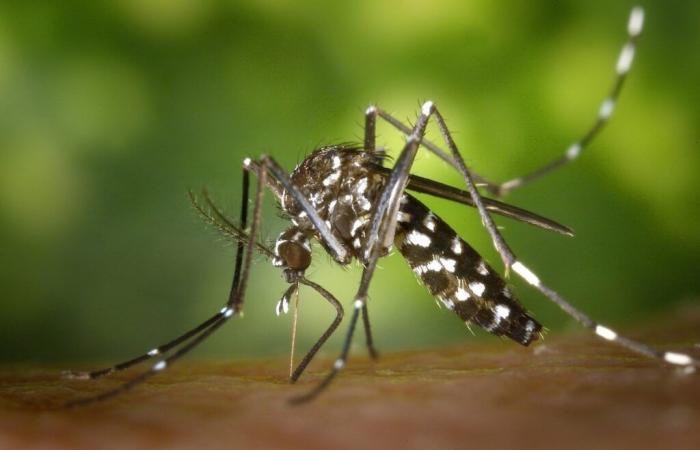
In a press release released this Thursday, November 14, the ARS Grand Est announced that Haute-Marne is now classified as an “area colonized by the tiger mosquito”.
Already present in Grand Est in several neighboring departments, the tiger mosquito has, since 2020, been the subject of monitoring in Haute-Marne, in particular in the municipalities of Saint-Dizier, Chaumont, Langres and Le Montsaugeonnais, in which traps were set.
Following the detection of its presence in Langres in August 2024, as part of monitoring the network of traps and the receipt of a positive citizen report, the ARS now classifies the department of Haute-Marne as a colonized zone. by the tiger mosquito.
Due to a citizen report positive for the tiger mosquito in the town of Langres, located near an equally positive trap, the ARS Grand Est carried out a field investigation to verify its presence with the implementation of actions preventive measures and measures to eliminate larval breeding sites. This investigation, carried out on September 6, 2024, in the Rue de la Liberté district by an operator authorized by the ARS, made it possible to confirm its presence in larval and adult form in an area of 300 meters around the report.
Langres at the origin of the ranking
The results of this investigation suggest a long-term establishment and development of the species in the commune of Langres. It is therefore considered to be colonized, thus leading to the classification of the entire department of Haute-Marne as a colonized zone. There are now five departments of the Grand Est region which are included in this group: Bas Rhin, Haut-Rhin, Meurthe-et-Moselle, Moselle and Haute-Marne.
In addition to the undeniable nuisance it causes, the tiger mosquito is also a potential vector of dengue, chikungunya and Zika viruses, hence the importance of fighting against its presence. Although these diseases mainly occur in tropical areas, the occurrence of indigenous cases in mainland France (cases having contracted one of these diseases in the absence of travel) represents a very real risk. The identification of an unprecedented number of indigenous cases of dengue fever in mainland France in 2022 demonstrates that this risk is not anecdotal. Exposure of tiger mosquitoes present in France to dengue, chikungunya or Zika viruses is particularly possible when travelers returning from countries where these diseases are prevalent (Antilles, South America, South-East Asia, Indian Ocean ) return infected and are bitten by local tiger mosquitoes. After a few days, these mosquitoes are capable of transmitting the virus in metropolitan France to a person who has not traveled.





